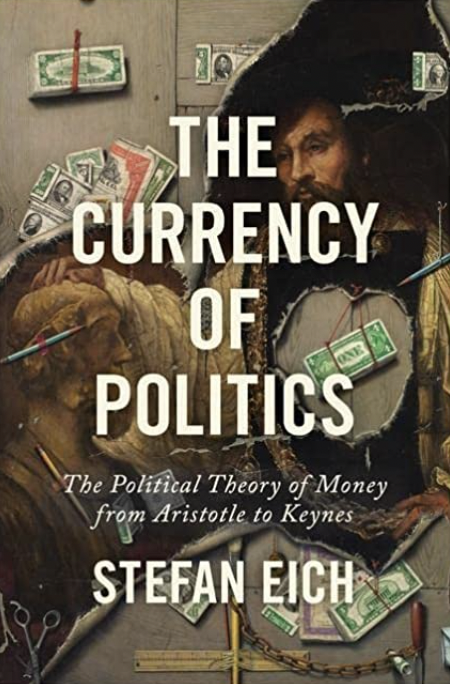
Currency must be defended from democratic interference


After the 2008 financial crisis, when the critical attention shifted from the economy to the most fundamental feature of all market economies, money, 2022, is turning out to be the year that puts the politics back into the monetary policy, with the impending fight for the next Conservative party leader between Rishi Sunak and Liz Truss, “to reduce the tax now or later”. For over the last 30 years inflation was dormant despite the tremors of the tech crash and the global financial crisis, even the exceptional monetary policy implemented after 2008, failed to provoke any real political controversy.
The Currency of Politics, Stefan Eich, a professor at Georgetown University, and a beacon of a new generation of scholars, guides readers through the oncoming monetary maelstrom and takes us through ancient Greece to today to provide an intellectual history of money, drawing on the insights of key political philosophers to show how money is not just a medium of exchange but also a central institution of political rule.
This year with the inflation topping 9 per cent in the UK and the US, the political question on everyone’s mind is when and by how much interest rates should rise and who will be the winners and losers when they do, as public satisfaction with the performance of Bank of England hit the lowest on record in June, with aspiring leader Liz Truss pledging to review the Bank of England mandate, and threaten the once sacrosanct idea of independent monetary policy away from politics. As the monetary targets of low and stable inflation for so long meant that higher-order questions of objectives and governance were regarded as largely settled, so focus was turned elsewhere.
Particular currencies are the creatures of particular political communities, as the philosopher of classical Greece identified the tensions between easy and sound money, and between discretionary and fixed standards that have dominated the monetary policy ever since.
Money appears to be beyond the reach of democratic politics, but this appears like so much about money is deceptive. Even when the politics of money is impossible to ignore, its proper democratic role can be difficult to discern. Stefan focuses on six crucial episodes of monetary crisis, recovering the neglected political theories of money in the thought of such figures as Aristotle, Johann Gottlieb Fichte, Karl Marx, and John Maynard Keynes, and reveals these layers of crisis have come to define the way we look at money, and argues that informed public debate about money requires a better appreciation of the diverse political struggles over its meaning. Recovering foundational ideas at the intersection of monetary rule and democratic politics, Eich explains why only through greater awareness of the historical limits of monetary politics can we begin to articulate more democratic conceptions of money. Eich illustrates the extremes in these perennial debates with the views of John Locke, whose successful intervention in favour of a fixed and immutable metallic standard in the great recoinage debate of 1696-97 set Britain, – and thereby the rest of the world- on the path to the gold standard, his vision was deliberately anti-political as he thought that the currency must be ruthlessly defended from democratic interference if it is to be made safe for commerce and investment. John Gottlieb Fichte, the first rector of Berlin university, whose work The Closed Commercial State emphasised, by contrast, the benefits of an actively managed domestic currency able to respond flexibly to changing economic conditions, as he saw political supervision as the whole point of the enterprise: monetary policy is one of the primary tools of a sovereign national government. However, Marx and Keynes identified an escape route from this seeming intractable disagreement, as Max argued for cutting the Gordian Knot, as relying on monetary policy to achieve social and economic reform is a waste of time, and the proper solution is to abolish money altogether and attack the underlying shortcomings of capitalist class relations at their source- takers only in revolutionary communist states on a temporary basis, while Keynes formulated the modern consensus for liberal, democratic states. Keynes’s Mandarin economic liberalisation found a way to accommodate both Fichte’s conviction that the monetary policy should serve political ends and Locke’s preference for insulating it from the democratic debate as the stage was set for technocratic central banks subject to oversight by elected politicians.
Eich writes “today’s central banks – and the private banks they supervise- exist in a peculiar constitutional blind spot in our policies”. With the real value of national currencies evaporating and digital competitors multiplying happily in the wings.
The Currency of Politics: The Political Theory of Money from Aristotle to Keynes by Stefan Eich, Princeton University Press $35, £28, 344 pages.
